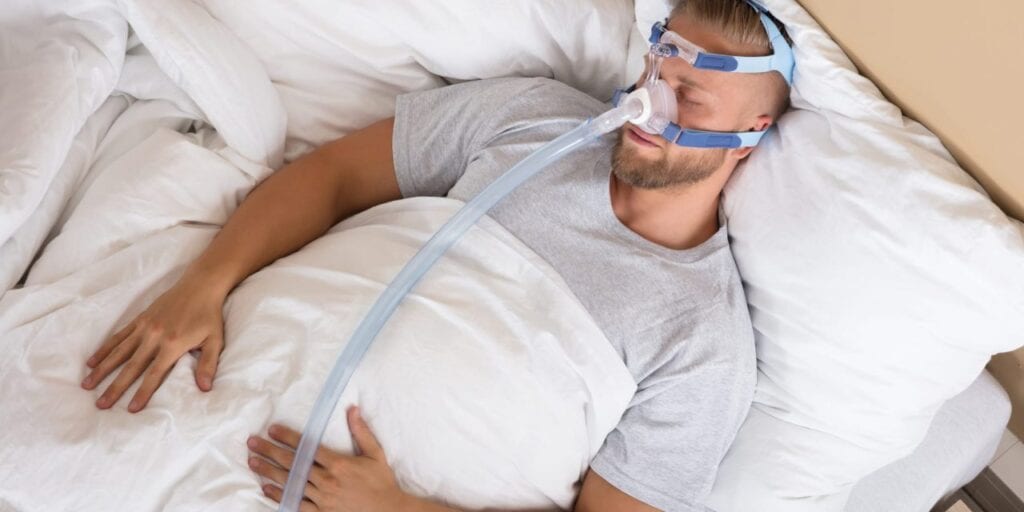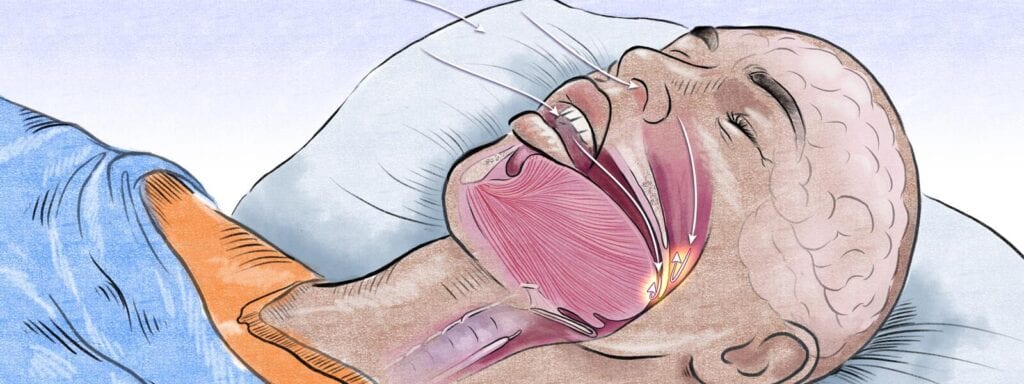If you struggle to breathe at night and wind up snoring, you will probably wake up frequently and your sleep quality will be poor when you are asleep. It is hard to perform your best without a good night’s sleep, thus sleep apnea can make your professional life much harder.
What Is Sleep Apnea?

Sleep apnea is a common sleep disorder affecting 6% of American adults. It makes breathing difficult and results in snoring and interrupted sleep patterns. It can also increase the likelihood of waking up in the middle of the night to urinate, which further disrupts natural sleep rhythms. With sleep apnea, restful sleep is almost impossible, even with a regular sleep schedule and sufficient hours in bed.
Sleep Apnea and the Brain

Sleep helps regulate two important chemicals in the brain, glutamate, and gamma-aminobutyric acid. Glutamate produces stress, while gamma-aminobutyric acid reduces it by helping you calm down. Sleep apnea increases glutamate levels and decreases gamma-aminobutyric acid levels, putting your body under a higher level of stress. When the body is highly stressed, it devotes most of its energy to survival functions, taking away from the high-level cognitive functioning necessary for high-quality work performance.
Energy

Poor sleep quality can lower your energy levels throughout the day. Far from being a little sleepy due to a sleepless night, you may experience chronic fatigue as you repeatedly struggle to sleep through the night. During the day, chronic fatigue decreases your ability to focus and process information, which can make tasks seem much more difficult. Sleep apnea can, therefore, decrease your efficiency and result in the production of lower quality work.
Cognitive Function

Rest is essential to brain function, so fatigue can lead to a cloudy mind. Sleep apnea can result in problems with concentration, coordination, memory, and learning ability if the brain does not have enough energy. Not only does concentration make you more efficient, but it is also essential to activities such as analytical thinking, problem-solving, writing, and math, all of which are commonly included in job requirements. Poor concentration can, therefore, decrease both performance and productivity in the workplace.
You need coordination and motor skills for writing, typing, walking, and other everyday functions. Sleep apnea can decrease your ability to perform these actions smoothly, making you less efficient and productive.
Whether you need to remember a client’s name, the details for an important presentation, or a deadline-filled schedule, you need your memory to get through the workday. When you do not get sufficient good-quality sleep, your mind becomes foggy and it is more difficult to remember things.
Even if you have a steady job and a college degree, the workplace is constantly evolving, and you have to evolve with it to remain competitive in your field. Because of this, it is important to pick up new skills quickly. However, sleep apnea decreases your mind’s agility and ability to learn quickly, making you less adaptable and more likely to get stuck in the way you have always done things.
Health

Sleep helps regulate your body’s ability to fight off illness. Without enough energy, your body does not have what it needs to maintain a strong immune system, so sleep apnea can cause you to get sick more often. When you are sick, you may have to take time off work. Even if you are still able to physically go to work, illness results in sluggishness, headaches, and distractions from physical side effects. These factors can impede concentration and make it more difficult to work efficiently.
Sleep deprivation can also make you depend on caffeine and sugar to get through the day. Both of these substances can result in energy spikes and crashes that may not coincide with the flow of a normal workday, so they can impact your performance in meetings and other critical points in the workday either by making you too jittery or by reducing your energy levels.
Mood

Without sleep to help you process the things that go on in your life, you are more likely to become anxious, depressed, or irritable. Anxiety can decrease your efficiency and overall ability to perform the necessary tasks at work due to the resultant racing thoughts, restlessness, and potential obsession over small details. Depression reduces your energy levels even further and decreases motivation, which can make it more difficult to start a project or follow through with your goals. Although irritability may not impact your ability to get work done individually, it can make collaboration much more difficult and hinder the productivity of your work teams.
Sleep gives your body time to rest, heal, and process everything that happens in your life. Insufficient sleep can result in poor concentration, low energy, low mood, and health problems, all of which can make it difficult to work efficiently and effectively. Seeking professional sleep apnea treatment can help improve your work performance and your overall well-being.
Consult with Sleep Apnea Professionals

If you or a loved one are currently experiencing such sleep disorder issues, lack of immediate treatment can pose a serious threat to one’s wellbeing and may cause irreversible damage. Many experts express how such conditions aren’t to be taken lightly or ignored for long-term periods due to the damage that can be done.
Penn Medicine Becker ENT & Allergy are a group of specialists that perform a wide range of ear, nose, and throat treatments for patients all over New Jersey and Philadelphia. Brothers Daniel G. Becker and Samuel Becker, along with their highly educated team of professionals, have several years of experience dealing with sleep disorders such as sleep apnea, snoring, and more. Pediatric services are available, as well. The Penn Medicine Becker ENT & Allergy website holds more details as to what a patient can expect from their sleep analysis appointment and treatment.
Visit the following page for more information on possible treatments: https://www.beckerentandallergy.com/snoring-sleep/sleep-apnea
 Imagup General Magazine 2024
Imagup General Magazine 2024



